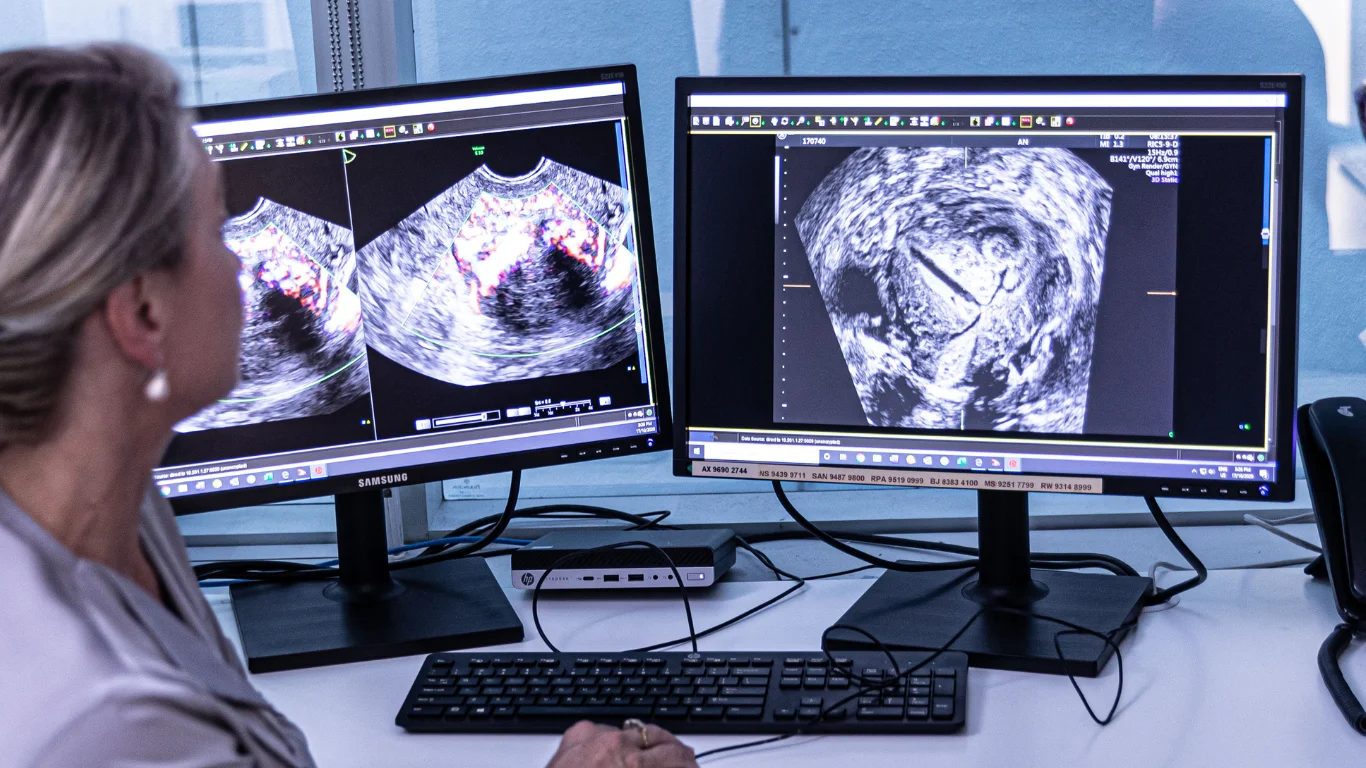There are a number of myths around ultrasound technology. The Ultrasound Care team of doctors and sonographers have highlighted these and give us the real facts.
All scanning technology has radiation and ultrasound is harmful to my unborn baby
Ultrasound is a scanning technology that does not expose you to any radiation. It uses ultrasound probes (also known as transducers) to produce and detect high-frequency sound waves. The scanner calculates the distance from the transducer to the tissue boundary by using the speed of sound and the time of each echo’s return. These distances in turn are used to generate images of tissues and organs.
Ultrasound is generally considered safe when used by appropriately trained health care providers and following the ALARA (as low as reasonably achievable) principle of prudent scanning. All Ultrasound Care sonographers and doctors are trained in ALARA principles.
Ultrasound waves can heat the tissues slightly but with modern ultrasound machines (as used by Ultrasound Care), the rise in temperature is usually negligible.
Also, transvaginal ultrasound is not more harmful than transabdominal scanning.
I need a full bladder for my ultrasound
This is not totally wrong but luckily there are only a few instances in which a full bladder is helpful. One example is the early pregnancy ultrasound as visibility of the pelvic organs is better with a full bladder.
A full bladder pushes the uterus up and the bowel away to enable us to see the deeper pelvic structures. However, even if the bladder is empty, an ultrasound can still be performed and results obtained. So, if you cannot hold on – please let us know!
I should not eat before an ultrasound
This is not an issue at all for pregnant women or women needing a pelvic scan.
However, this is more important if you are having an upper abdominal ultrasound and the Ultrasound Care team will advise you of this prior to your appointment.
Ultrasound is always correct about the fetal sex
Fetal sex determination should not be made before 12 weeks’ gestation because it is much less accurate. The accuracy later on in gestation is 99 to 100%, however there are many factors that can reduce that accuracy and hamper our ability to determine the fetal sex.
Ultrasound is a non-invasive procedure
This is again partly correct. Ultrasounds are mainly done outside of the body however sometimes a transvaginal ultrasound may be needed. This depends on the reason for the ultrasound as well as the information that is needed to answer the clinical question and the Ultrasound Care team will discuss this with you prior to undertaking this scan.
If you’re not sure, please ask us
One of the core beliefs of Ultrasound Care is that women should be informed of all aspects of our service and the different options available to them. If you have any questions about your scan, our team or our equipment – please let us know. We are happy to answer your concerns and provide you with any additional information.






